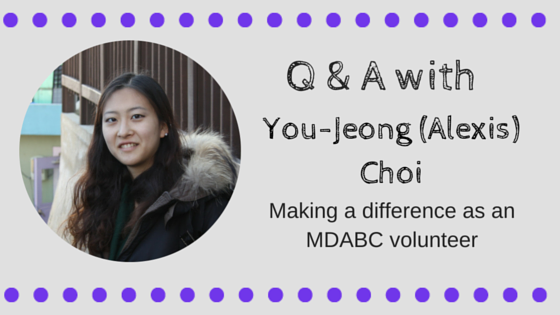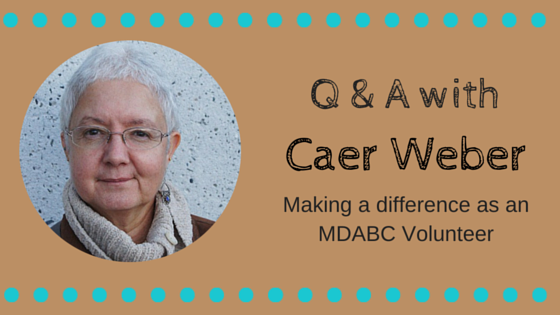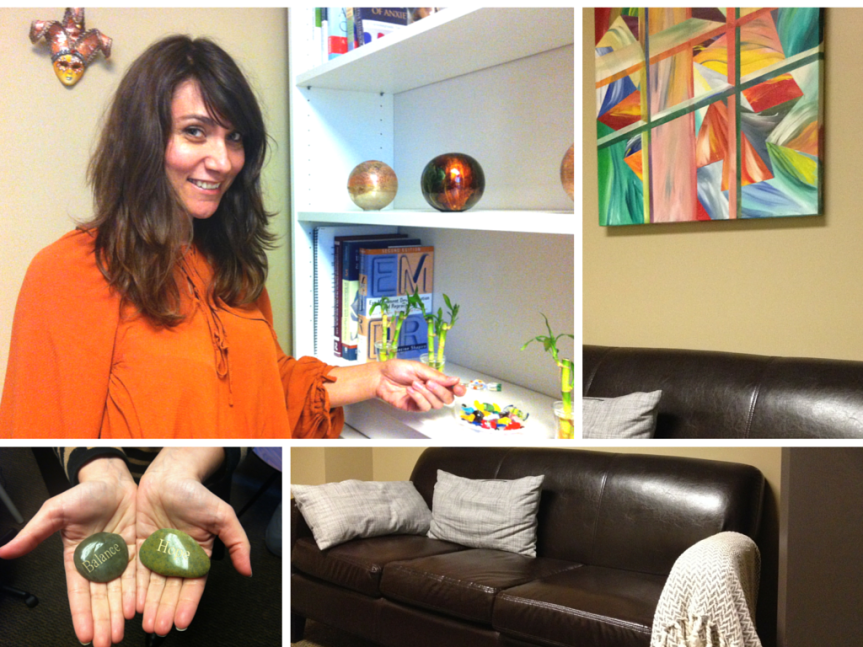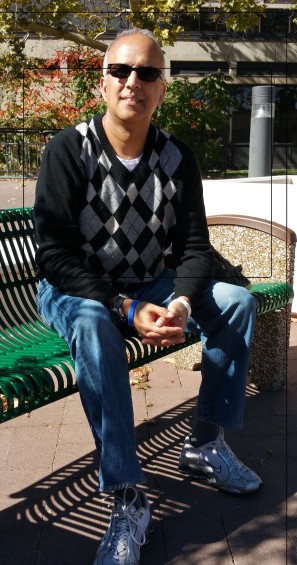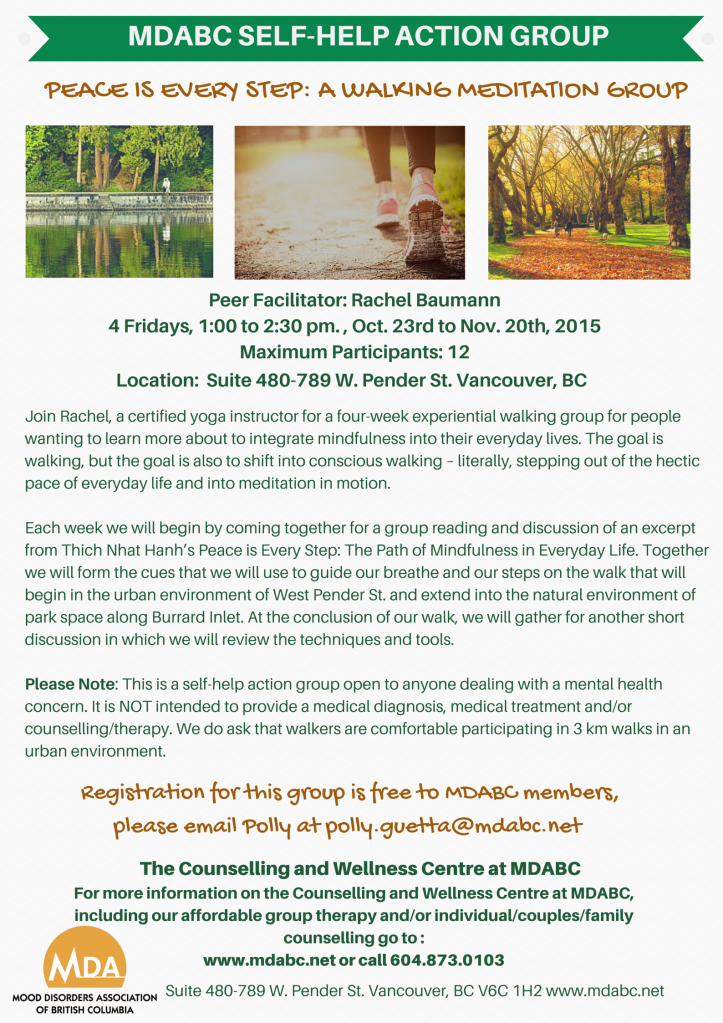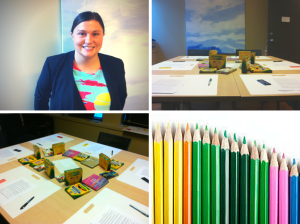How did you come to be a volunteer at the MDABC?
I studied psychology at school and was quite eager to find and be in an environment that would be related to my degree. That’s when my friend posted a volunteer opportunity at MDA on Facebook. I thought volunteering here would provide me with some ideas for my future career. Then, when I came in for the training, everyone at MDA was very encouraging and supportive, so I decided to stick around.
What kind of volunteer work have you done at MDABC?
I am one of the Office Greeters, which means we greet patients when they walk in, give them some forms to fill out, and hand over information packages. We do our best to make the first impression of MDA as warm/comfortable as possible, because it is! We also help out with simple, yet time-consuming tasks, e.g. data entry, data clean-up, filing, answering emails, putting things together in bags or envelopes, to take load off already busy staffs, or at least try. I also train new volunteers if the time works and sometimes act as a liaison with other greeters if need be. Other than that, I am responsible for taking care of plants in the office, too.
What do you find most rewarding about doing this work?
Aside from volunteering, my work is in a one-to-one setting. So although it’s minimal, interacting with “people” at MDA is interesting enough for me. Getting hands on various small tasks prevent me from getting bored or feeling unproductive so that’s good, too. But above all, the staffs here are awesome. They are fun and very encouraging. If any greeter’s task is overwhelming, the staff will give you time until you’re ready. Once you show willingness, they will help you get prepared and will give a lot of tips and full support. Small things can be scary for someone at times but they really help you through it. So, to answer the question, the most rewarding aspect would be just being here. I learn a lot from them, from minor office tasks to treating people with respect and kindness.
What kind of programs would you like to see offered in the future?
As someone working with children and youth, I would like to see more programs or support for this age group, possibly in a variety of settings or locations. It is hard for them to find programs that are accessible enough and I want them to be able to get as much support as possible before they have to get more independent.
What are three things that you do to feel happy and well?
Anything to get my mind off work, basically. I want to have a clear distinction between life and work. So I like doing anything where I wouldn’t have to think too much. I like to drive and listen to loud music, or both at the same time. I also enjoy going for a walk with my dog in between work to get some fresh air.


